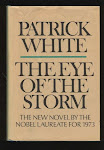
This is a book written by Peter Rose, the brother of Robert Rose, both belonging to a Collingwood Football Club dynasty. Their father had been a player, the coach of a grand final team, and vice president. Several uncles also played, one being the president of the club. Robert was the sportsman, and followed the family tradition and played for Collingwood, but he also played at elite level cricket. Peter, is a poet and gay. In 1977, Robert becomes paraplegic following a car accident. Notwithstanding this is a tragic story about real people, it has all the elements of an incredibly powerful yarn with tissue boxes at the ready -sporting heir (golden haired in fact), the gay poet son, and the tragedy.
But there is something in the way the story is told that feels that there is much not said. Somewhere in the book Peter Rose writes something like, it’s amazing what you can bury in order to make an icon, and the book is a loyal tribute to football, the iconic status of their family, and the legend of the father and son. But what is the cost of this loyalty? We know that the mother sacrifices her own singing career to devote herself to being a “Collingwood wife” (or widow?), and with some bitterness says to her daughter-in-law who complains about the dominance of football over family life - you wanted him, so up with it. Ouch!
But perhaps my prejudice about football and cricket got in the way. I mean, the roll call of court appearances, violence, sexual harassment, binge drinking, and alcoholism - and that’s just cricket. Remember when rehab meant physiotherapy? So I cant engage with the same level of romanticism about the club, male bonding and camaraderie that Peter Rose describes. This was the cauldron of the suffering for many a boy who didn't 'make the team'. Peter looks on from the outer, and sees the camaraderie enjoyed by his brother when in the company of his beer addled mates at the club and wonders what it would be like to belong.
I think this is the story of the loyal outsider. He fleetingly refers to his sexuality but provides no detail of what impact this had on the family. It feels a huge omission given who this family is. I imagine he would say something about how the focus of the story was his brother and the impact the accident had on them. But, in doing so, Peter has to leave too much of himself out of the book, and it is poorer for it. He refers to all his partners by an anonymous alphabet code _ "A", "B" etc, and the description of being in a 10 year relationship with someone who never inquires about his family makes me wonder about his capacity to "leave himself out".
Apart from a young life struck down, the tragedy for me was how this sporting fixation of the brother did not prepare him for an engagement with life wider than the oval. With no other interests and with sport the only thing to lubricate interaction with men, Robert was bound to have a very unfulfilling life. It really was a restricted life, and I get the same feeling with the telling of the tale. By staying loyal to this sporting family, and keeping the faith, he ended up with a thin story which ultimately left me cold, disappointed and sad for everyone. Perhaps the real story lay in what could not be said.






